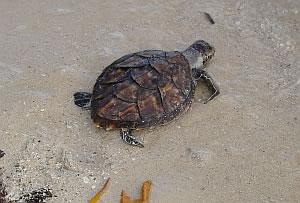By Alexia Waring
Working abroad is an exciting prospect, but sometimes the jobs themselves can be a bit, well, boring. Serving tequila shots is great fun when you spend the days topping up your tan, but if you want to do something a bit more stimulating, why not try volunteering?
Providing your services for free opens up a far wider range of vacancies in exotic locations, and best of all, you get to spend your days doing something enjoyable rather than just paying the rent.
Take working with animals. Many people longed to be a vet or a zookeeper when they grew up, but without years of training, you are unlikely to secure this kind of paid work in another country. Swap “paid” with “voluntary” and lo! Hundreds of opportunities arise, as this piece about volunteering with animals abroad shows.
Of course, you won’t be trusted will performing surgery or mending broken legs, but you will still play a vital role in ensuring creatures kept in captivity or receiving treatment get the best care.
Tip: Read this piece about working with dolphins on Working Abroad Magazine online and learn about working at the San Diego Zoo and other animal parks on JobMonkey.
There is plenty to consider – not least what sort of work you want to do. If you choose a designated animal sanctuary, such as a crocodile park or panda reserve, obviously you will learn plenty about a few selected species. Larger organisations, such as zoos, have hundreds of animals to care for and you may have to pick up the different demands quickly.
Say you want to help at a zoo. A four-week placement at Zoo Negara or Taiping Zoo in Malaysia, with Real Gap will let you prepare the animals’ food, feed them, clean them out and possibly help. You will probably be drafted into helping keep the zoo tidy for visitors, but that is all part of the job. A four-week placement costs £1,379, and you are expected to work 8am-5pm, five days a week.
Anyone with a love of reptiles would find it hard to resist this Indian crocodile conservation project run by WAVA. Volunteers spend between four and 16 weeks at a conservation centre near Chennai, at a cost of £1190-£2490. No formal qualification is needed, although previous experience is always welcome. This project has a more responsible role, as you will be able to supervise visitors holding baby crocodiles, and help with research projects.
None of these suggestions cover the programmes in great depth, and it is important to read all the associated information before flying out. Make sure you know exactly what is provided and what is not, so that you are prepared to buy your own food or accommodation as necessary. Most of the upfront fee charged by volunteer companies is used to cover your in-country costs, but very few include extras such as flights or visas, which vary depending on individual nationalities.
Volunteering with animals is not glamorous work, so anyone adverse to strong smells, dirt or fluids should think carefully about signing up for a long-term placement. This does not mean you will be placed somewhere that fails to maintain standards, but bear in mind that most creatures are not as fastidiously clean as human beings!
Of course, there is a safety element to volunteering with animals, and it is important to have all the necessary vaccinations before you head out. They will vary depending on destination and type of work, but generally you should expect to have tetanus, diphtheria, hepatitis A and possibly B, polio, rabies and typhoid.
People heading to South America or Africa will probably need yellow fever, and travellers in to south-east Asia will be required to have Japanese B Encephalitis shots. The best place to find out what will be required is your GP or the NHS Fit for Travel website. And here’s another useful webpage, which tells you which jabs are available on the NHS and which you must pay extra for.
Finding the best project can be tricky, but there are plenty of websites that collect them together for your perusal. Check out the links included above, and do not forget Working Abroad Magazine either!
So, although volunteering with animals abroad will probably be expensive, hard work and time-consuming, it will also be exhilarating, enjoyable and a real achievement. If you find you love the work, it is a great step towards finding full-time employment in your chosen field; if not, you have the satisfaction of knowing your contribution has made a concrete difference to the project you supported. There’s no real downside!
WORKING ABROAD MAGAZINE –
“The TRUSTED guide to working abroad including thousands of amazing jobs in incredible places.”
